By: Dean A. Langdon
You may have seen publicity about bankruptcy cases where legal fees run into the millions of dollars (or more). But bankruptcy courts have a unique process for paying attorneys that represent debtors, trustee or creditor committees. The attorneys have to file an application that details the work performed, time spent, hourly rates, etc., and the court (and others) will review the applications. There are specific provisions of the bankruptcy laws that tell judges what factors to consider in approving legal fees, including not just the time spent and hourly rate, but whether the services were necessary, consistent with the complexity of the case and in line with fees of attorneys outside the bankruptcy system. 11 U.S.C. § 330. However, that law doesn’t include the results obtained by the attorneys as a factor.
Recent Case Law on Fees in Bankruptcy Court
The Sixth Circuit Court of Appeals recently upheld a bankruptcy court ruling awarding the attorneys for a trustee only half of what they requested because of the results obtained by the attorneys. In re Village Apothecary, Inc., Case No. 21-1555 (August 16, 2022). The Court of Appeals held that it was acceptable to consider the results obtained by the attorneys even though the law doesn’t specifically list that as a factor.
Village Apothecary filed a Chapter 7 bankruptcy in 2015 and the trustee retained special counsel to investigate claims which the attorneys estimated could result in recovery of over $1.6 million dollars. The attorneys spent a year investigating the claims and drafted a complaint claims against the owner of Village Apothecary. Discussions between counsel for the owner, the trustee and his counsel resulted in a settlement of just $38,000. The trustee’s attorneys then asked the bankruptcy court to approve fees of about $37,000. Although no one objected to the fee application, the court held a hearing to determine if the fees should be reduced “given the amount of the benefit to the estate.” The bankruptcy court ultimately halved the fees awarded to special counsel.
The case ultimately made it to the Court of Appeals, which approved the reduction of fees. It reasoned that the bankruptcy court may consider the results even though it is not listed as a factor in the statute because it used “including” when it listed the factors to consider and also directed bankruptcy courts to take into account “all relevant factors”.
Results of a Bankruptcy Case/Fees Approved
So, the lesson for attorneys practicing in bankruptcy court is to be cautious about the amount of legal fees being incurred in relation to the ultimate results. While a bankruptcy court will consider many factors in deciding whether or not to approve fees, it seems unlikely that attorneys doing work which ultimately just benefits the attorneys won’t have all of their fees approved. Also, one has to wonder how much the trustee’s attorneys spent trying to get all of their fees approved. The bankruptcy court decision was appealed to the district court three times, which reversed twice, then approved the halving of fees on a third appeal. Only then did the attorneys get to appeal to the Court of Appeals. This author suspects that even if they had won, the time and expense of pursuing the appeals would have more than consumed the award of additional fees.
About DelCotto Law Group
DelCotto Law Group is Kentucky’s asset preservation and business restructuring law firm known for its commitment to the lifetime success of its clients. DLG serves Kentuckians with complicated financial matters, especially in the areas of bankruptcy and complex litigation. For more information please call (859) 231-5800, email [email protected] or reach us on our contact page.

